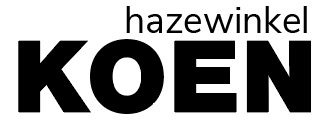Why we need a change of perspective?
These times call for a dynamic perspective on management, call for new leadership. Where strategy stands for a strong inner goal and a stimulating multi-year perspective. Where organizations are constantly developing and where leadership looks authentically at itself. Knowing that there will be permanent development, constant flux and evolution. In which humanity comes first, uncertainty is embraced and letting go is crucial. In which we look deeper and think differently. Where we dare to let go of the established truths and address the real issues. Where we dare to reflect on what really matters and where we make true choices.
Why do I believe that?
Western societies are based on a very static worldview. A perspective that originated in the early years of the Enlightenment. A period in which scientists such as René Descartes and Isaac Newton laid the foundations for today’s Western thinking and acting. This perspective still has an enormous influence on how we perceive the world today. Whether we are talking about Biology, Economics or Sociology, they all start from the same static reductionist perspective in which malleability and explicability dominate and Mathematics is the sole language of Truth. This also applies to business thinking and acting and the associated management views. Organizations as a lego-box. When you click the right bricks on the right place on the plate, we automatically get the image as it appears on the packaging. Time and time again.
But let’s be honest: even when the manufacturing industry forms the basis of our prosperity, our economy and thus our thinking about companies and management, even then not everything is “manufacturable”, “makeable”. The idea of engineerability is a very narrow view of reality. The static perspective falls hopelessly short. The world is so much richer and more complex. We experience this every day within our companies, within our organizations and in our dealings with each other. There is a need for a different way of looking at things. More dynamic. Where we start from movement, complexity and interaction. From probability and not from certainty. From autopoiesis instead of malleability. Within this perspective, the world is dynamic and only slightly predictable. Steering is replaced by self-steering. And development and movement are the dominant characteristic features and not constant and equilibrium.
Current times call for a richer picture of reality, of organizations, companies and business activity. A more dynamic perspective. A perspective that assumes dynamism, constant interaction, development and mobility: VIBRANT THINKING. Not to replace existing ways of thinking about business and management but as a valuable addition. This has major consequences for the way in which we make strategic choices, for the way in which organizations develop and for the way leadership in organizations behaves and manifests itself. Closer to reality, letting go, pragmatics, unpredictability, dynamics, self-development, stakeholder value, people, planet and profit, life opportunity, social network and communality, shared inner purpose and motivating perspective, authenticity, honesty and accessibility, space for the human dimension and permanent development, are all concepts that are part of a dynamic perspective on Strategy, Organizational Development and Leadership. They are part of successfully dealing with the complexity of today’s world.
Time for truthfulness
